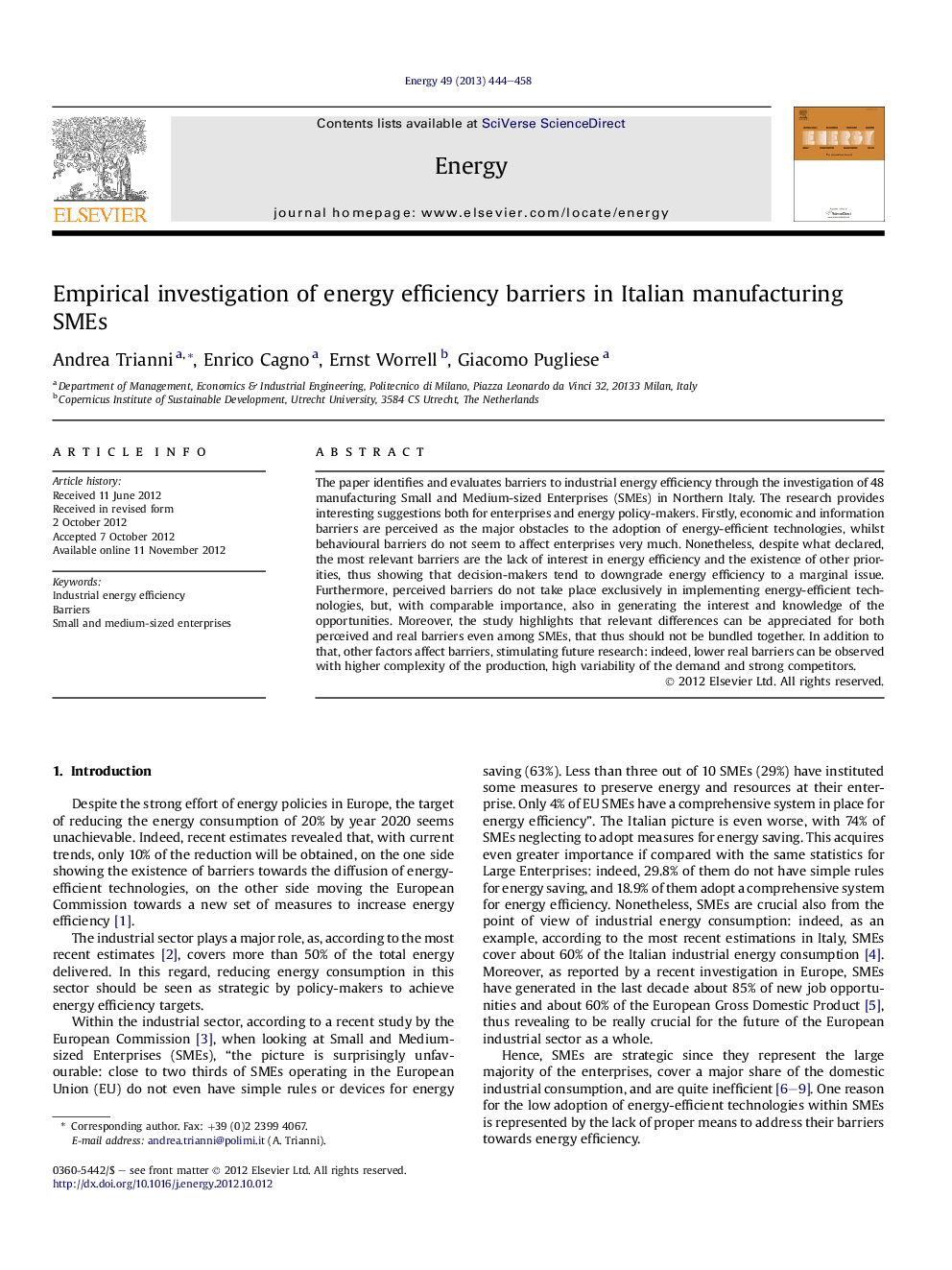| Article ID | Journal | Published Year | Pages | File Type |
|---|---|---|---|---|
| 1733308 | Energy | 2013 | 15 Pages |
The paper identifies and evaluates barriers to industrial energy efficiency through the investigation of 48 manufacturing Small and Medium-sized Enterprises (SMEs) in Northern Italy. The research provides interesting suggestions both for enterprises and energy policy-makers. Firstly, economic and information barriers are perceived as the major obstacles to the adoption of energy-efficient technologies, whilst behavioural barriers do not seem to affect enterprises very much. Nonetheless, despite what declared, the most relevant barriers are the lack of interest in energy efficiency and the existence of other priorities, thus showing that decision-makers tend to downgrade energy efficiency to a marginal issue. Furthermore, perceived barriers do not take place exclusively in implementing energy-efficient technologies, but, with comparable importance, also in generating the interest and knowledge of the opportunities. Moreover, the study highlights that relevant differences can be appreciated for both perceived and real barriers even among SMEs, that thus should not be bundled together. In addition to that, other factors affect barriers, stimulating future research: indeed, lower real barriers can be observed with higher complexity of the production, high variability of the demand and strong competitors.
► Evidence of existing misalignments between perceived and real barriers to the adoption of energy-efficient technologies. ► Relevance of barriers to the generation of interest towards energy efficiency. ► Evidence of firm's size (within SMEs) and energy expenditures on barriers to energy efficiency. ► Importance, for energy efficiency barriers, of avoid bundling SMEs as a whole. ► Preliminary evidence of factors related to supply chain complexity affecting barriers to energy efficiency.
